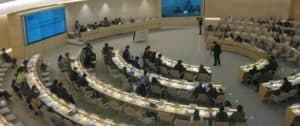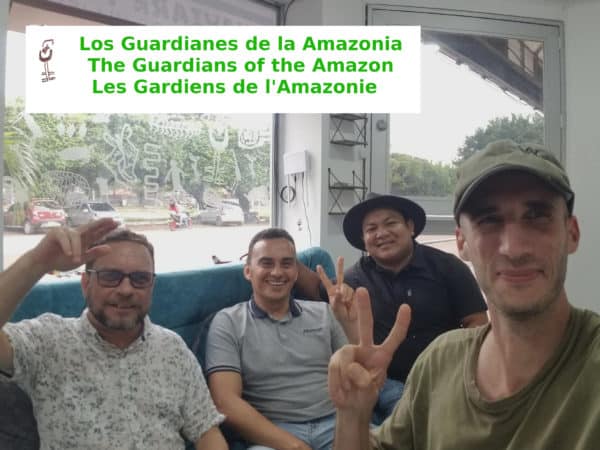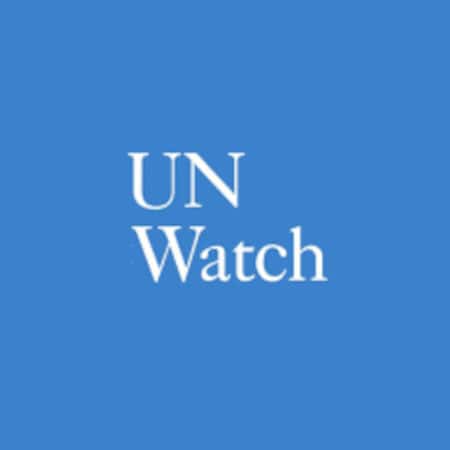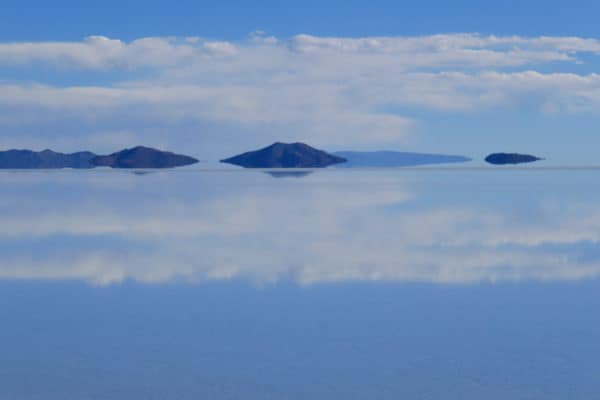 A long time ago, I considered Cuba as a power against a uniform, unequal and tough Western-driven world. Cuba was the sand in the gears, reminding everybody that women’s rights and minorities’ rights have to stay high on the agenda. This was my belief until I started working in the human rights field. Whilst it is true that Cuba is facing one of the most prominent long-lasting injustices of our time (the US Embargo), the Caribbean Island is also creating more injustice for people both at home and abroad. It came as a shock when I realised the extent to which Cuba was pro-actively engaged in undermining human rights. One should consider this: all states are following their own national interest. However, as long as this interest does not conflict with human rights, they should not undermine the latter. In many Western countries, human rights are even considered as a national interest. In the case of Cuba, however, diplomats behave like employees of all dictators: they mix the ruler’s interests with the country’s interests. They lie, cheat, and see civil society as a threat, and refuse to engage into any dialogue. How could one see them as a voice of the poor? Cuba is the voice of dictators. Only a fool could see Cuba as a defender of the poor and excluded. At least this is my perspective from Geneva, the worldwide capital of human rights, and my view is based on how Cuba is dealing with international mechanisms, notably the Universal Periodic Review (UPR).
A long time ago, I considered Cuba as a power against a uniform, unequal and tough Western-driven world. Cuba was the sand in the gears, reminding everybody that women’s rights and minorities’ rights have to stay high on the agenda. This was my belief until I started working in the human rights field. Whilst it is true that Cuba is facing one of the most prominent long-lasting injustices of our time (the US Embargo), the Caribbean Island is also creating more injustice for people both at home and abroad. It came as a shock when I realised the extent to which Cuba was pro-actively engaged in undermining human rights. One should consider this: all states are following their own national interest. However, as long as this interest does not conflict with human rights, they should not undermine the latter. In many Western countries, human rights are even considered as a national interest. In the case of Cuba, however, diplomats behave like employees of all dictators: they mix the ruler’s interests with the country’s interests. They lie, cheat, and see civil society as a threat, and refuse to engage into any dialogue. How could one see them as a voice of the poor? Cuba is the voice of dictators. Only a fool could see Cuba as a defender of the poor and excluded. At least this is my perspective from Geneva, the worldwide capital of human rights, and my view is based on how Cuba is dealing with international mechanisms, notably the Universal Periodic Review (UPR).
The UPR is a unique mechanism attached to the Human Rights Council (HRC) in Geneva which assesses the human rights situation in every country of the world. 193 UN Member states are required to publicly share their human rights performance, and show the measures taken in order to improve the every-day life of their citizens. While the UPR is a rather soft mechanism (no binding rules), 193 countries were reviewed once between 2008 and 2012 and a second round of reviews has been under way since 2012. Cuba, like all states of the world, complied twice with the principle of being criticised by its peers; once in 2009 and once in 2013. One of the reasons to explain the UPR’s success is its universality: no state is beyond international community scrutiny because all UN member states can raise any issue they want. Although friendly states often take the floor to congratulate their allies, no state is immune from receiving recommendations meant to enhance the human rights conditions for its citizen. This ensures, at least in part, a constructive and fruitful dialogue.
A second clear improvement brought by the UPR is the official participation of civil society. Non-governmental organisations (NGOs) can submit reports to the HRC. They can meet with diplomats. They can take the floor. They are an official source of UPR outcomes, working to depoliticise a highly politicised, state-driven mechanism.
No UN member state is perfect. The USA, for example, received 280 recommendations in 2010 received 280 recommendations in 2010 to improve its human rights situation. A vibrant national and international civil society pushed to raise concerns of importance for US citizens. The USA has accepted to play by the rules: they have suggested areas of improvement to many countries and positively engaged into a dialogue with some of these countries when it came to the US review. While the USA knew that many countries would ask for international instruments ratification and the abolition of the death penalty, they did not prevent the game being played.
Cuba’s case was dealt with in a very different manner. Castro’s ruled island dedicated its efforts to undercut civil society’s voice. Cuba did its utmost to “crash the system”. Cuban diplomats called most of the Permanent Representatives in Geneva to share what they would like to hear during Cuba’s review. They organised several side-events to influence the content of the debates.
Do not get me wrong here: there is no neutral actor when it comes to international relation. NGOs have their pet peeves, and states mix economic and political interests with human rights. All sort of actors are legitimately subject to criticism. But again, thanks to the universality of the mechanism, the UPR is a successful exercise. Any country can criticize any country.
Back to Cuba, I will take four examples of how they tried to prevent a fully functioning review. Firstly, 454 reports were sent by civil society organisations for Cuba’s second UPR. As I previously said, although civil society can influence the UPR, there is no specific rule to impede any NGO submitting a report. This enabled the Associations of Friendships (i.e. Portugal-Cuba, Zimbabwe-Cuba, Slovakia-Cuba, Malaysia-Cuba), and countless so-far-unknown NGOs, to take part in the UPR. Compared to the USA, where 96 reports were submitted, most of the submissions to Cuba intended to praise the high achievements of the Caribbean Island. Conversely, submissions made to the USA’s UPR were meant to address human rights violations. I infer that Cuba intensively requested hundreds of extremely politicised NGOs, which never before participated in any national or international human rights mechanism, to share their biased comments with the international community. Cuba’s objective was to overwhelm more objective NGO reports with hundreds of biased reports, making unbiased information hard to come by. This is almost unprecedented in the UPR history. The only exception is another Cuban neighbour: in 2011, 570 reports were sent for Venezuela’s UPR. Such numbers remain without equivalent to date given that as such a result demands a lot of energy and resource in gathering so many allies.
Secondly, Cuba organised HRC meetings (as known as side-events) in order to remind the consequences of the Embargo. Cuba is definitely right in putting this issue on the top of the agenda. The UN General Assembly has recently voted for the 22nd time to call on the USA to lift its 53-year trade embargo, with no result. However, it is unusual for a state to hold 3 side-events. This highlights the extent to which Cuba makes use of every single opportunity to demonstrate there is no human rights violations which result from government policy. It seems, according to the Cuban government, the only problem facing its population are those caused by the Embargo. There is no room for self-criticism for Cuban officials; they spend significant resources to avoid any sort of blame.
Thirdly, Cuba is engaged in furious activity to motivate all potential allies (mainly Non-Aligned Movement members, but not only) to take the floor at its review. I should point out that during the UPR the time to take the floor is limited to 2:20 hours. This time is provided to states intending to suggest recommendations to the state under review. As a result 140 minutes are divided among all UN member states registered to take the floor. Cuba’s representatives in Geneva made contact by phone, email, and fax with dozens of Permanent Missions in order to urge them to take the floor. Cuba even shared the talking points that it would like to hear during its review. As a result of the Cuban lobbying, 134 of the 175 Permanent Missions in Geneva registered to take the floor [1] for Cuba’s review, meaning each state was granted only 51 seconds to speak. The Cuban strategy is clear: the more numerous the states to take floor are, the less time each state can speak. Only China bettered this achievement with 137 states registering to speak; but wait, this is the world’s second biggest economy and represents one fifth of the worldwide population, with interests and embassies the world-over. Without such undermining tactics, fewer countries would have taken the floor and would have been able to deliver longer critical statements. The strategy mirrors the NGO submissions: a desperate attempt to cloud the situation.
Last but not the least, this overall strategy permitted Cuba to break all standards in terms of number of recommendations received, with almost three hundred. One wonders: where do you start with so many suggestions of improvements? . Actually, this is also part of the Cuban human rights vision: Cuba can reject meaningful recommendations (asking for deep change) and accept largely meaningless ones which for example invite Cuba to “continue to enhance the interests of the people of Cuba and overcome any undue process”. At the end of the day Cuba can boast to have accepted high percentage of recommendations and widely comply with the UPR mechanism, although they rejected high number of strong and worthwhile recommendations; those which can make a difference on the ground. Again, such behaviour is unknown to the UPR world.
The attractiveness of Cuba for left-wing intellectuals is understandable. This small island is one of the most conspicuous signs of resistance against the cupidity and hypocrisy of the West. Cuba has sent medics everywhere in the world, and many poor countries have actually benefited from Cuban know-how. Though, however high Cuban achievements have been, activists should be aware that Cuba is neither a sincere nor reliable ally for the human rights cause. Only the visually impaired do not see the damage caused by Cuba to national, regional and international human rights mechanisms. Due to its universality, the UPR is the most promising tool to advance and secure human rights. Cuba puts the mechanism at risk and weakens a tool which can be meaningful for more than 7 billion individuals. Cuba is undoubtedly the country which does the most harm to the UPR, a unique process meant to ameliorate the rights of peoples. If Cuba were really the champion of poor and disadvantaged people (as I used to believe before), it would not challenge or harm this mechanism. With no fear of the outcomes, Cuba takes advantage of any opportunity to do politic. It’s true that many well-meant human rights defenders support Castro’s regime, however I want to make this clear: there is a deep contradiction between simultaneously supporting our ideal of human rights and supporting the Cuban regime. Beware of people who tell you otherwise, they are either ignorant of the Cuban policy, or worse, they are against the human rights cause themselves. In Geneva, without a shadow of a doubt, Cuba is actively working against human rights for its own political motivations. Furthermore, Cuba’s confidence is reinforced by the fact they are supported by many human rights champions. It is time to remove the blindfold and look at the facts.
Références
- The following states only did not take the floor at Cuba’s review: Afghanistan, Albania, Andorra, Antigua and Barbuda, Bahamas, Belize, Bosnia and Herzegovina, Bulgaria, Côte d’Ivoire, Croatia, Denmark, Dominica, Gambia, Georgia, Greece, Grenada, Guatemala, Guinea, Iceland, Israel, Latvia, Liberia, Libya, Liechtenstein, Lithuania, Luxembourg, Malta, Mauritius, Monaco, New Zealand, Paraguay, Portugal, Republic of Korea, Republic of Moldova, Rwanda, Saint Lucia, San Marino, Seychelles, Swaziland, The former Yugoslav Republic of Macedonia[↩]



